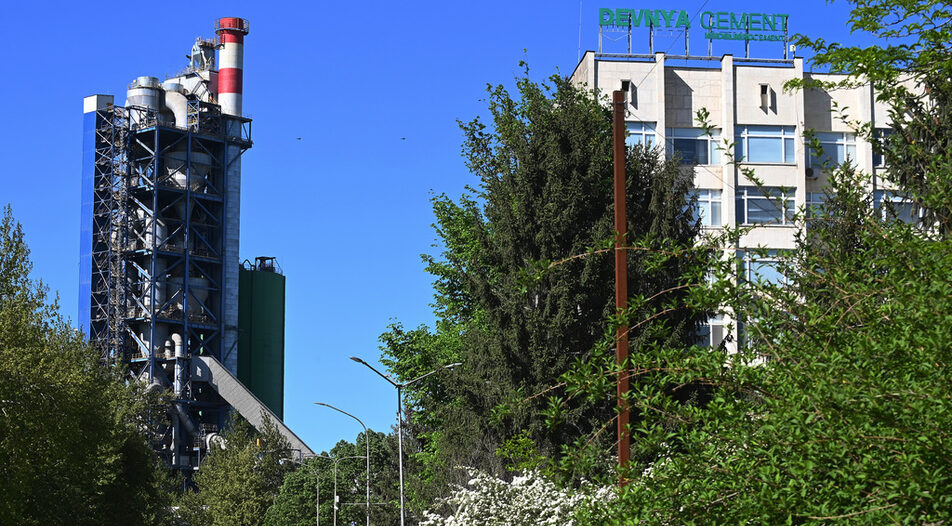Judging by the results of the largest cement producer in Bulgaria - Devnya Cement, the industry had a strong 2021. Last year the company, which is part of German HeidelbergCement group, almost doubled its revenues, which reached BGN 243.2 million (EUR 124.3 million). Profit also increased nearly sixfold (to 47% of revenue), putting the company among the most profitable in the country.
One of the reasons for the robust growth is the lower base in 2020, when the start of the pandemic caused a market shock, putting many projects on hold and reducing the company's sales. However, revenue in 2021 is significantly above the pre-recession levels, which is due to cost optimization in addition to stronger market demand. "Production, deliveries and customer relations are better planned," CEO Mikhail Polendakov says. He has headed the company since 2022 after running the HeidelbergCement Group's business in Russia for more than a decade.
Crisis Management
Despite its excellent financial performance, the company has also had to contend with a series of crises in recent years. "It's a global process that started as soon as the pandemic hit us, because the closing of borders and the suspension of cargo handling at ports led to a logistics crisis," Mr Polendakov says. In 2020, the company reported a slight drop in demand due to the postponement of construction projects, but at the same time sales of packaged cement rose as many people took advantage of the state of medical emergency for home repairs.
The rise in electricity prices in recent months since the start of the war in Ukraine poses risks across the continent. According to Mr Polendakov, even with the best planning and a balanced government policy, Europe could meet at most 47% of industry's energy needs by itself. And this requires the EU to develop a comprehensive strategy for the future. "I think we will have an energy input problem in heavy industry in the next few years," he says.
The problem with the import of Turkish cement, which in recent years has put pressure on the local industry, remains relevant. With the depreciation of the Turkish lira and galloping inflation, cement factories there are increasingly turning to exports to secure the necessary revenue in dollars or euros. "Unfortunately, the presence of Turkish cement in Bulgaria is getting more and more visible," Mr Polendakov says.
The trends: green and digital
The trend in heavy industry is for companies to offer complete solutions tailored to customers' needs. According to Polendakov, this is exactly what was done last year and is one of the reasons for the strong results. Devnya Cement has a mobile laboratory that has equipment and technical staff to test concrete and materials, thus providing customers with off-site or on-site consultation. "Depending on the needs of a particular client on a particular project, we make a formulation so that both they and we can benefit," Mr Polendakov explained.
He believes that Bulgarian consumers are somewhat spoiled and traditionally only use the high grade pure Portland cement to ensure trouble-free strength performance. At the same time, the innovative practice in Europe and the world in general is to focus on recycled concrete in order to reduce carbon emissions and limit the use of fresh raw materials, or to incorporate additives from related industries (ash, granulated slag, etc.) into the cement. This reduces pollution on the one hand and costs on the other.
Devnya Cement recently became the first Bulgarian company to win funding from the EU Innovation Fund. Its ANRAV project to capture and utilize carbon emissions from industry will receive 190 million euro in grant funding from the fund, with the remainder to come from private funding. It is planned to capture and store carbon emissions from industry in the depleted gas field in the Black Sea near Varna. The system is expected to be operational in 2028 and will have a capacity of 800,000 tons of carbon dioxide per year.
Another trend that is gaining momentum in the cement industry (like everywhere else) is digitalization. It is helping to reduce fixed production costs and at the same time to solve the problem of the shortage of workers, which is the result of both demographic trends and the reluctance of young people to work in the industry. "The factory of the future is one with robots. Of course, this will not come to Bulgaria in the next 10-15 years because it requires a large initial investment, but this is the trend, this is where we are going," Mr Polendakov believes.
Cautious forecast
Devnya Cement does not give precise forecasts for 2022, but Mr Polendakov says the company is likely to meet its operating plan, which is slightly better than last year's. The market remains stable for now, but the main risk comes along the lines of inflation. "If the same rate of inflation continues, it will sooner or later lead to an increase in the price of mortgage loans, which will affect the real estate market and consequently the demand for concrete and cement," he explained.
Therefore, the company's short-term strategy is to develop solutions for end customers that are adequate to the emerging volatile development of the markets in general. And that means lower-carbon products that retain their strength parameters. "We want to teach consumers that there is more than pure Portland cement. These are new products for Bulgaria, but I think they are already well received," Polendakov concludes.
Read More












